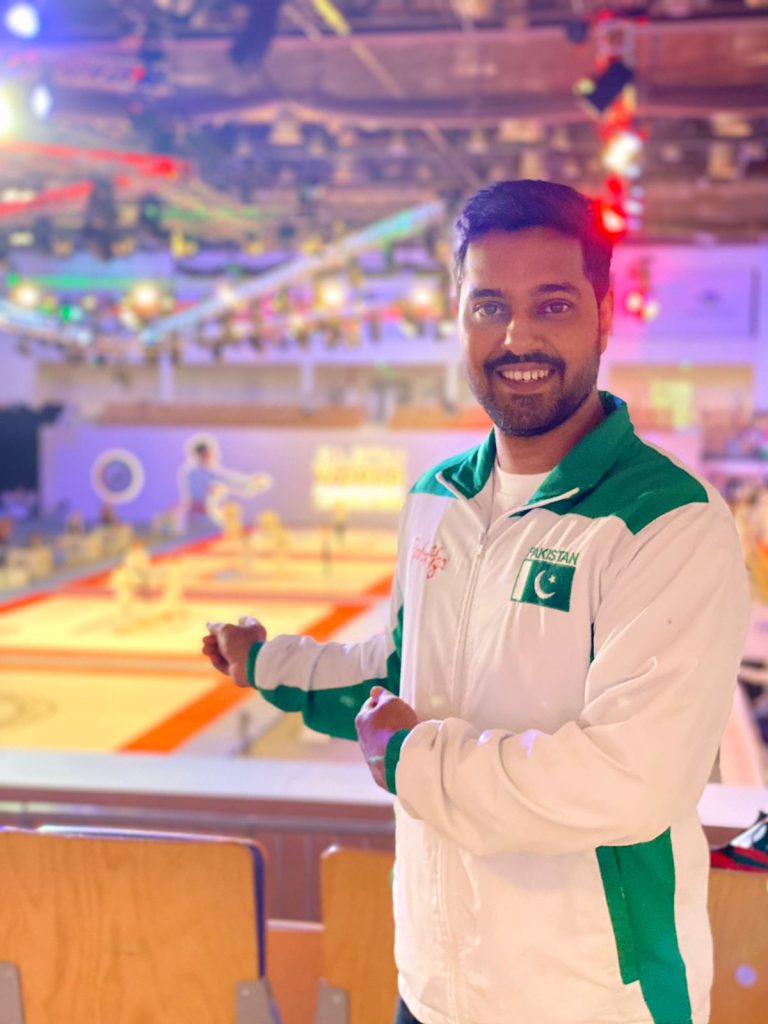Introduction
Muhammad Ammar is a very talented and seasoned martial artist. He holds black belts in Judo as well as Jujitsu. He has competed worldwide and received numerous medals for his accomplishments. Presently, he is retired from active competition and has dedicated his time to coaching, refereeing, and mentoring up-and-coming Jujitsu practitioners in Pakistan and beyond.
Q&A
FightMatrix: Who is your greatest inspiration in the sports industry?
Muhammad Ammar: When I was young, I loved watching movies that inspired me to learn martial arts. After watching those movies, I joined a club and started learning judo, even though no one in my family had any connection to martial arts. This journey not only helped me develop physical strength and discipline but also taught me valuable life skills such as perseverance, respect, and self-control. As I progressed in my training, I began to realize the true essence of martial arts – it’s not just about physical combat, but about cultivating mental toughness, emotional balance, and spiritual growth. Today, I’m proud to say that martial arts has become an integral part of my life, and I hope to inspire others to explore its many benefits. Through my own experiences, I’ve learned that martial arts is not just a sport or a hobby, but a way of life that can transform individuals and communities in profound ways.
FM: Tell us about the differences is between Jujitsu and Brazilian Jiu-Jitsu (BJJ).
MA: Jujitsu and Brazilian Jiu-Jitsu share a common origin, but they have distinct differences in their focus, techniques, and training methods. Jujitsu is a traditional Japanese martial art that emphasizes throwing, grappling, and submission techniques. It focuses on using an opponent’s energy against them. Brazilian Jiu-Jitsu, on the other hand, is a derivative of Jujitsu that was developed in Brazil in the early 20th century. BJJ focuses more on ground fighting, submission holds, and joint locks. It emphasizes using leverage and technique to overcome larger and stronger opponents. In summary, while both Jujitsu and BJJ share a common root, Jujitsu tends to be more focused on traditional Japanese techniques and standing grappling, whereas BJJ is more focused on ground fighting and submission holds.
Interestingly, BJJ has evolved to work as a private federation, where individuals can participate in competitions as part of any registered club worldwide. This allows for a more flexible and inclusive competitive environment. In contrast, Jujitsu competitions operate under a more traditional framework, where athletes represent their countries under the auspices of the Jujitsu International Federation (JJIF), which is recognized by the International Olympic Committee (IOC). To participate in international Jujitsu competitions, athletes must be registered with their country’s national federation, which in turn must be affiliated with the JJIF. This structure allows Jujitsu athletes to compete at the highest levels, representing their countries with pride.
FM: At what age did you become a Judoka? Please explain the importance of this martial art.
MA: I embarked on my martial arts journey with karate at the age of 14, but it was judo that truly captured my heart just six months later. As I delved deeper into judo, I felt an intense connection to the sport, realizing that it was exactly what I had been searching for in martial arts.
I was fascinated by the intricacies of judo, particularly the techniques employed when facing an opponent. I wondered, “What happens when my opponent closes in on me? How do I counter their moves, especially if they outweigh me?” Judo’s scientific approach to combat, with its emphasis on leveraging an opponent’s power against them, resonated deeply with me.
As I progressed in my judo training, I discovered that judo originated from jujitsu. This revelation sparked a desire to learn jujitsu as well, and I began to study it concurrently with judo.
FM: When did you begin practicing Jujitsu?
MA: I started training in Jujitsu in 2008, and since I was already a judo player, I didn’t face much difficulty in learning it. I began competing internationally in 2009, and my first event was a tough trial where I had to compete against the best from all over Pakistan. I was very nervous, as it was my first time, but I managed to win the trials and secure a spot in the national team. Getting selected for the national team was a huge achievement for me, and it marked the beginning of my journey as a professional Jujitsu athlete.
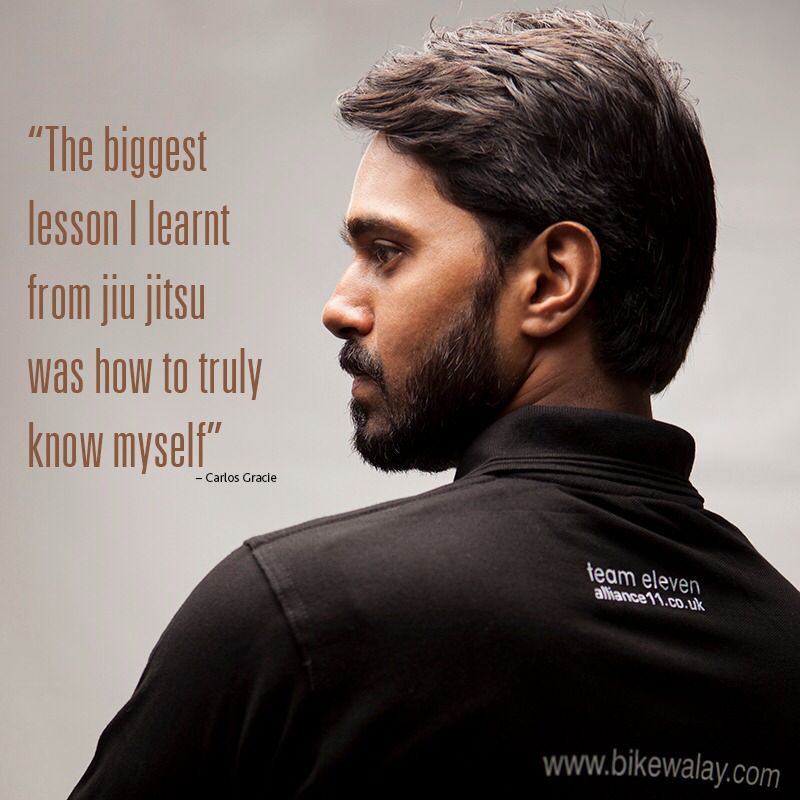
FM: What important skills did you take from Martial Arts to implement it into your life?
MA: When I first stepped into the world of martial arts, I realized that it’s not just about self-defense; it’s a way of life. Martial arts teach you discipline, perseverance, and the art of living. One of the most valuable lessons I’ve learned from martial arts is to never give up, no matter what life throws at you.
In everyday life, people often get discouraged by failures, whether it’s failing an exam, struggling in business, or dealing with job stress. Many people lose their way and give up on life. But as a martial artist, you learn to find a way forward, no matter what. As the saying goes in Jiujitsu, ‘There is no losing in Jiujitsu; either you win or you learn.’
Through martial arts, I’ve acquired a multitude of skills that have helped me navigate life’s challenges. In fact, I’d say that I’ve learned how to live through martial arts. The lessons I’ve learned on the mat have translated into everyday life, teaching me to be resilient, adaptable, and determined.
FM: What does it feel like to be the first internationally known Pakistani Jujitsu athlete?
MA: When I began representing Pakistan in Jujitsu; the sport was not as popular in the country as judo, karate, or taekwondo. Ironically, jujitsu is the mother art of judo and karate, but sometimes children can surpass their parents. There’s no harm in that.
Jujitsu was introduced in Pakistan in 1998 by Mr. Khalil Ahmed Khan, who is still the Chairman of the Pakistan Jujitsu Federation. Since then, Pakistani athletes have been participating in international jujitsu events, and the country has been consistently winning medals on the global stage.
As an individual sport, Pakistan’s jujitsu team has secured top rankings in international competitions.
I began my career under the guidance of my mentor, Mr. Tariq Ali, along with my colleagues Abu Hurraira. Together, we consistently stood on the medal podium from 2010 to 2017. Since then, jujitsu has gained immense popularity in Pakistan, and I believe it is now considered one of the top-ranking sports in the country.
Representing Pakistan on the international stage has been an incredible honor for me. When I wear my country’s flag and hear my nation’s name being announced in a foreign land, it’s an indescribable feeling. The sense of pride and responsibility that comes with representing one’s country is overwhelming, and I feel truly humbled by the experience. It’s a feeling that I struggle to put into words, but it’s one that I will always treasure.
FM: Have you ever thought about competing in Mixed Martial Arts?
MA: Yes, I wish I had thought about it a long time ago, but now it’s too late. If I were to start MMA fighting now, I’d only end up hurting my face and nose, because MMA isn’t easy. If I was going to do it, I should have done it during my peak time, but now it’s too late. However, I’ve recently started an MMA fighting series, and the first edition was a huge success. I’m currently preparing for the second edition, and I’ve taken this step along with my friend Zakir Abbas, who is also an international Jiujitsu and BJJ athlete. We’re not only friends but also partners in this initiative, and we’ve been successful so far. We plan to continue and take this series global, showcasing the talent and skills of MMA fighters from around the world.
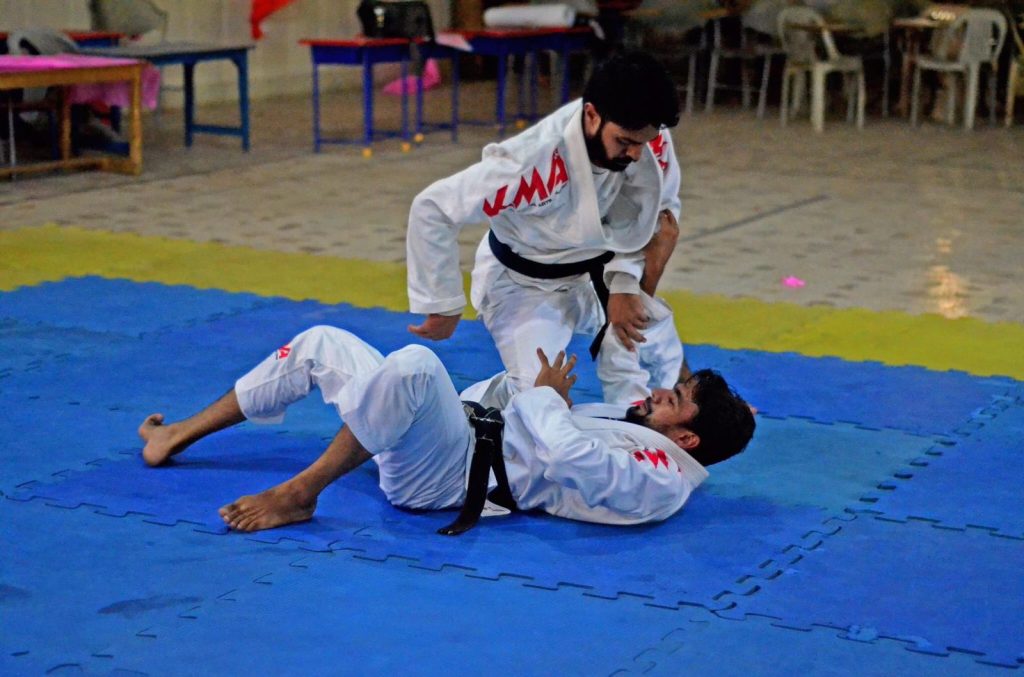
FM: What are your hobbies aside from martial arts?
MA: Besides martial arts, I enjoy spending quality time with my family and sharing the benefits of martial arts with them. Family time is the most important thing to me. I also love watching movies with my family, traveling across the country, swimming, playing volleyball, reading books, and following politics. I find it fascinating to listen to and watch politicians, and I enjoy staying informed about current events.
FM: What drives you for competition?
MA: I’m grateful to my coach for helping me prepare for competitions and for believing in me when no one else did. My coach saw something in me that others couldn’t – a potential that I didn’t even know I had. Despite my difficult financial situation, my coach motivated me to work hard, and to trust in my abilities.
It wasn’t easy, of course. There were times when I struggled to afford the basics, let alone the specialized diet, training equipment, and supplements that I needed to compete at a high level. But my coach’s encouragement and support gave me the confidence to push through those tough times.
And when I finally started winning, oh, the feeling was incredible! There’s no rush quite like the thrill of victory, and it’s a sensation that I’ll always cherish. My coach played a huge role in helping me get to that point, and I’ll always be grateful to them for that.
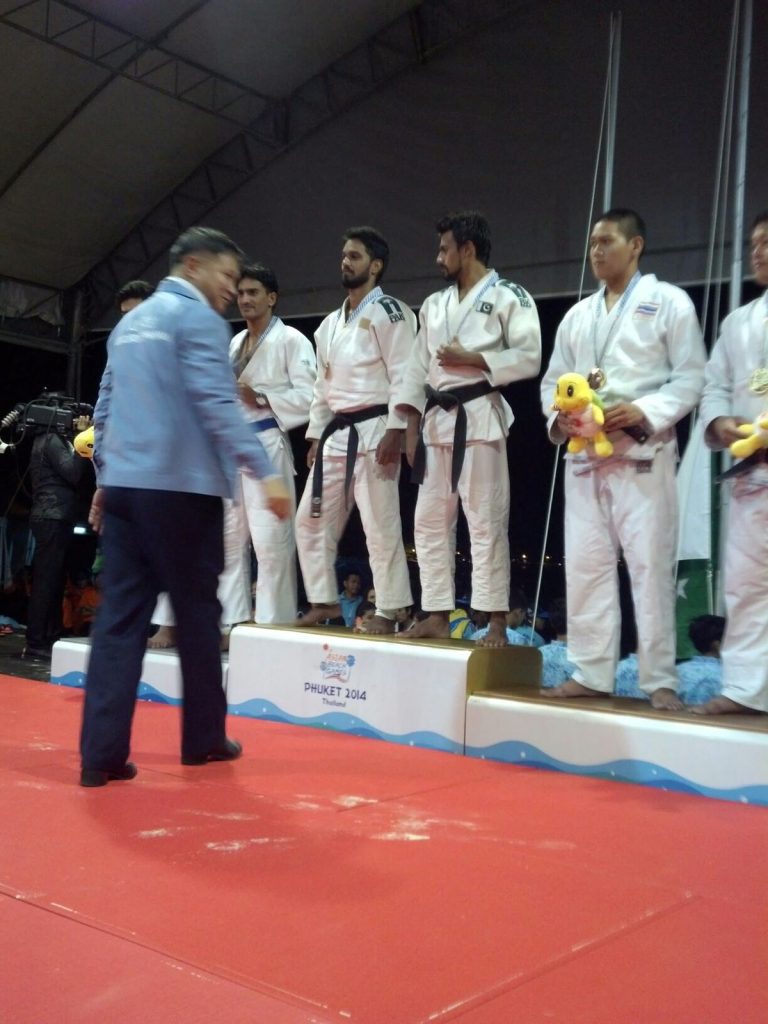
FM: Tell us about what competitions you have participated in. What medals have you won?
MA: My martial arts journey began with karate, where I competed at the domestic level and achieved numerous victories. I then transitioned to judo, a highly technical and engaging sport, and became a national-level bronze medalist.
Next, I embarked on learning jujitsu fighting, which encompasses striking, throwing, grappling, locking, and submission techniques. Jujitsu comprises of five categories: Fighting, Ne-Waza (similar to Brazilian Jiu-Jitsu), Duo System (a pairs event showcasing 12 techniques), Show System (a pairs event demonstrating self-defense scenarios), and Combat Fighting (similar to MMA).
I commenced competing in jujitsu fighting, winning national events and earning a spot on the international team. My international debut took place in Uzbekistan, where I secured a bronze medal. I subsequently expanded my skills to include the Duo System, competing internationally and accumulating medals.
The highlights of my competitive career include:
- 2010: Silver medals in jujitsu fighting and Duo System at the Asian Championship in Iran
- 2012: Silver medal in jujitsu fighting and Gold medal in Duo System at the Asian Championship in Iran
- 2013: Gold medal in Duo System at the International Sports Festival in Pakistan
- 2014: Gold medal in Duo System at the Asian Beach Games in Thailand
- 2016: Silver medals at the Asian Championship and Asian Indoor and Martial Arts Games in Turkmenistan
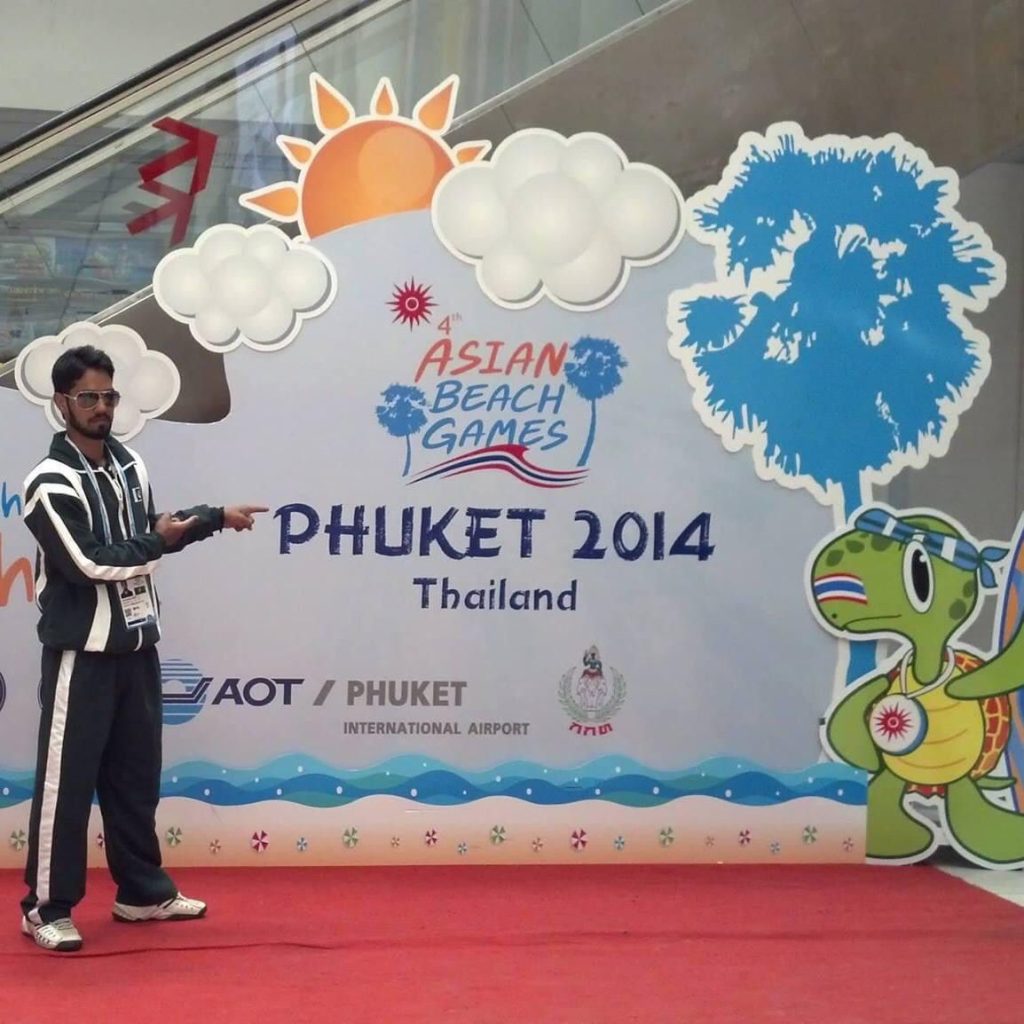
FM: What drove your decision to retire from competitions?
MA: Despite facing setbacks, including a road accident that left me with a broken leg, I persevered. After a two-year hiatus, I made a comeback, competing in the 2021 World Championship in the UAE. Although I didn’t secure a win, I continued to push forward, ultimately winning a bronze medal at the 2022 Asian Championship in the UAE.
Having retired from competitive martial arts, I now focus on coaching, refereeing, and mentoring the next generation of martial artists. I obtained my Continental referee license and participated in the 2024 Asian Championships in the UAE as a referee, further solidifying my commitment to the sport.
FM: Is there anything that you would like people to know about you, that we have not discussed?
MA: As I look back on my journey, I’m thrilled to be featured in this website . It was my dream to be in the International magazine somehow it is come true, and I feel like my aspirations are finally being realized. Maybe this is the start of something even bigger. Life is unpredictable, but by taking deliberate steps towards improvement, we can create a better future.
I decided to retire from competitive sports earlier than I had to, despite being able to continue for longer. However, after a life-changing accident and a long recovery period, I realized it was time to give the next generation a chance. This decision wasn’t easy, but I knew it was necessary to give young, talented athletes the opportunity to shine.
One thing that really bothers me is how hard it is for Pakistani athletes to succeed. We don’t have the right infrastructure, coaches, equipment, or facilities to compete at the highest level. Even when we do manage to win, it’s tough to keep that momentum going.
The truth is, Pakistani athletes have to work twice as hard to get half the recognition. We face so many obstacles, from lack of funding to poor training facilities. It’s hard to stay motivated when the odds are against us.
However, I believe we can turn this struggle into an opportunity. By acknowledging our weaknesses and working hard to fix them, we can create a better future for Pakistani sports. It’s time for us to come together, support each other, and create a platform to showcase our talent.
My goal is to help identify, nurture, and empower talented Pakistani athletes. I want to make sure our athletes have the chance to succeed and make our country proud. To make this happen, I need the support of people like you. Together, we can create a brighter future for Pakistani sports.
It’s time for us to take control of our sports industry, invest in our athletes, and give them the resources they need to succeed. We need to create a system that rewards hard work, dedication, and perseverance. It’s time for us to put Pakistan on the global sports map, and I’m honored to be a part of this journey.
Conclusion
Muhammad Ammar feels that martial arts is a way of life. Martial arts instills structure, discipline, and a healthy way of living into one’s lifestyle. Muhammad is it decorated martial artist. With dedicated and hard work, he has obtained a black belt in Judo and Jujitsu. It’s impressive how much he has accomplished throughout his career. His interview shows how much he loves being an athlete.
It is extremely difficult for Pakistani athletes to receive the proper training that they need to excel in their profession. This is something that many of us take for granted when living in other countries. A great deal of talented martial artists are located in Pakistan. Muhammad Ammar has made great inroads in representing his country, and advancing martial arts in it.

MMA & Boxing Columnist | Business Development Consultant
I have been a fan and avid viewer of all combat sports for over 20 years. I was once a Judoka, which is what eventually piqued my interest in Mixed Martial Arts.
For 25 years I’ve worked in healthcare, and now am trying to make something that was a hobby, into a full-time endeavor.

